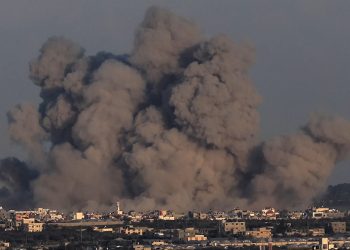Pakistan and Afghanistan have been sharing friendly and brotherhood-based relations; however, over time, cross-border terrorism and the Taliban government’s continuous failure to impede terrorist activities against neighboring countries have raised important questions. Now is the time to address these questions in a serious manner.
It is essential for Pakistan to discuss international cooperation in the fight against terrorism. In this regard, the member states of the United Nations also have responsibilities to assist in counterterrorism efforts. Regarding Afghanistan, it is important to examine the legal implications on a global level when a state is attacked from the territory of another state.
Pakistan’s internal security policies reflect that the National Action Plan (NAP) was introduced specifically to counter terrorism and address security challenges ahead. Initially, NAP consisted of 21 points, but after implementing various measures, only 14 remain to act upon. Going forward on the path against terrorism, Pakistan has conducted many military operations against terrorism, targeting sectarian organizations and financial networks that support terrorism in any way.
Non-military measures are crucial and necessary in the fight against terrorism, yet they remain incomplete. Similarly, industrial development is essential to enhance Pakistan’s capacity to combat terrorism effectively. It is necessary for the United Nations, as an institution responsible for maintaining international peace and security, to take a clear stand on terrorism in accordance with its charter.
The United Nations Security Council Resolutions 1371 and 1267, along with other international laws, oblige member states to prevent terrorism from originating within their territories. Pakistan must refer to these resolutions while seeking global support, financial aid, and exerting pressure on states that harbor terrorist groups.
Recently, there has been a 66% increase in cross-border terrorist attacks in Pakistan. Every conscientious Pakistani should be concerned about the Taliban’s inaction against terrorist groups operating from Afghan soil, particularly TTP and ISIS. It is our diplomatic responsibility to remind the Taliban government of its previous commitments to prevent Afghan territory from being used by terrorist organizations.
On the issue of the increasing threat of TTP and ISIS militants and their impact on regional and global security in the geopolitical scenario, the international community must act urgently to prevent the spread of terrorism beyond the region. The Pakistani nation can demand the UN to impose sanctions on the Taliban government of Afghanistan and increase pressure on them for failing to control terrorists and their outfits.
We acknowledge the resources allocated by the United States and other countries for the war on terrorism while recognizing that Pakistan remains the most affected country by terrorism. Dealing with the Taliban and addressing security threats requires a dual strategy. The United Nations, as well as several nations, have acknowledged Pakistan’s critical role in the war against terrorism.
Globally, Pakistan is being appreciated because its military operations are effectively implemented. However, non-military measures have fallen short due to a lack of resources and financial support, as needed in such operations. The roots of terrorism in Pakistan trace back to the post-Afghan war period when the U.S. and its allies failed to provide adequate support to those who fought against the Soviet Union.
Due to resource constraints, the failure to rehabilitate former Mujahideen fighters contributed to the spread of terrorism in Pakistan. The ideologies originating from Afghanistan are influencing many terrorist groups in Pakistan, while Afghanistan’s Taliban government has consistently failed to curb the terrorist groups and activities, posing a significant threat to Pakistan, especially after the Doha Agreement, when Afghanistan released terrorists instead of handing them over to their neighboring country, as Pakistan demanded from the Taliban government, raising doubts about their capabilities, intentions, and policies in this regard.
The Taliban’s historical ties with various terrorist organizations complicate their governance and control efforts. The global trust in the United Nations Security Council has diminished, particularly due to its inaction on issues like Gaza and Kashmir. While the Taliban government is yet to be formally recognized internationally, they are establishing relations with several countries, including India and Japan.
The main reason for not recognizing the Taliban government is their failure to fulfill promises made under the Doha Agreement, particularly concerning counterterrorism efforts and human rights. Interestingly, the U.S. is providing humanitarian aid to Afghanistan through the UN without formally recognizing the Taliban.
Meanwhile, the Taliban are demanding the release of their frozen assets to strengthen their government and fulfill their international commitments. Pakistan acknowledges shortcomings in its past policies and recognizes the need for a new strategy in dealing with the Taliban. The insecure border between Pakistan and Afghanistan remains a major challenge, contributing to ongoing cross-border terrorism.
To address terrorism-related issues, Pakistan must enhance its diplomatic efforts and resolve complex issues in its relations with the Taliban. This is necessary to counter emerging challenges amid a rapidly changing global landscape and geopolitical context, allowing Pakistan to overcome economic difficulties and eliminate obstacles to national progress and prosperity.





























